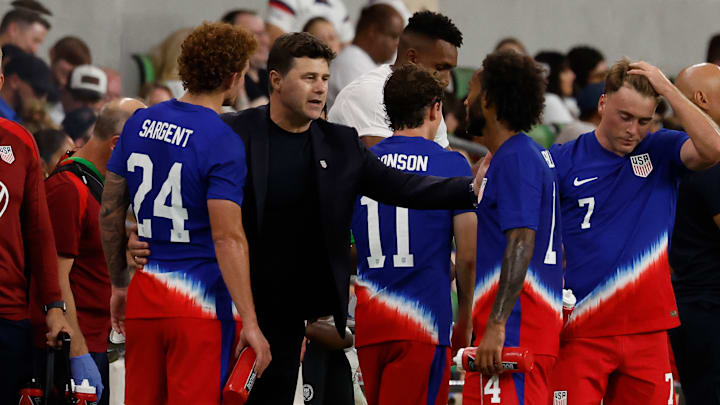If there’s one thing every soccer fan knows, it’s that when Mexico and the U.S. hit the field, we’re not talking about your typical friendly match. Sure, the label says “friendly,” but don’t be fooled. When Akron Stadium in Zapopan lights up for this clash on the night of October 15, you can bet the sparks are gonna fly. And this time, the eyes won’t just be on the players, but on the man patrolling the sideline: Mauricio Pochettino, the new head coach of the U.S., who’s already shaking things up.
Now, if you’re expecting to see a laid-back game with smiles and handshakes all around, think again. The rivalry between the U.S. and Mexico in soccer is basically a Cold War disguised as a match. The “friendly” tag? Just for show. And with the U.S. riding a seven-game unbeaten streak against Mexico, the tension’s only rising.
Follow MLS Multiplex on X (Twitter).
Mexico, on the other hand, is out for redemption. Head coach Javier Aguirre, in his third stint with the team, has a solid track record and the weight of a demanding fan base. It’s not just about his titles or experience—Aguirre knows that losing to the U.S. is like a gut punch to Mexican fans. He’s desperate for a big win, something to restore Mexico’s confidence.
But here’s the catch: this mission’s trickier than it looks. Mexico hasn’t beaten the U.S. in four years. Yeah, that’s right—since 2019, El Tri hasn’t tasted victory against their northern rivals. And to make things worse, the U.S. always seems to get stronger just when Mexico needs a win the most. That seven-game unbeaten streak? It’s the longest in the history of this rivalry, and it doesn’t look like it’s ending anytime soon.
What makes this showdown even more intriguing is the role Pochettino will play. The Argentine coach is responsible for keeping the U.S. on top, and so far, he seems to know what he’s doing. Since taking over, he’s already made some tweaks and led the U.S. to a 2-0 win over Panama in his debut. Sure, Panama’s not Mexico, but you can see he’s starting to put his stamp on the team.
Now, Pochettino’s facing a real challenge. After that win against Panama, he lost five key players, including Christian Pulisic and Weston McKennie. And if you think that’s not a big deal, think again. Pulisic is the guy everyone wants to see on the field, and McKennie is a rock in midfield. But Pochettino, being the smart coach he is, has already made it clear he’ll rotate the squad and explore other options.
It might seem like a disadvantage, but if there’s one thing Pochettino knows how to do, it’s make the most of what he’s got. He’s done it with clubs like Tottenham and PSG, and now the big question is how he’ll handle this on the international stage. Without Pulisic, he’ll have to rely on the youth and energy of players like Yunus Musah and forward Brandon Vazquez.
On the flip side, Mexico isn’t exactly cruising either. They recently tied Valencia in a roller-coaster of a match. And while Aguirre has talent in the squad, consistency’s been an issue. Mexico needs to bring something extra, especially playing at home. Playing in Akron Stadium is a double-edged sword: the crowd’s support is a huge boost, but it’s also a lot of pressure. If Mexico doesn’t deliver a strong performance, the fans won’t be forgiving.
Speaking of pressure, the arrival of 19-year-old midfielder Obed Vargas is an interesting twist in the story. Born in the U.S., Vargas switched his allegiance to play for Mexico, and he might make his debut against the very country where he grew up.
For Mexico, winning is a matter of pride, a chance to reclaim their authority in North American soccer. For the U.S., it’s about keeping the momentum and showing that Pochettino’s the man for the job. Every play, every move, every decision will be scrutinized, because this clash is the future of both teams, who will co-host the 2026 World Cup. Mexico’s hungry for revenge, while the U.S. is determined to keep their dominance rolling.
